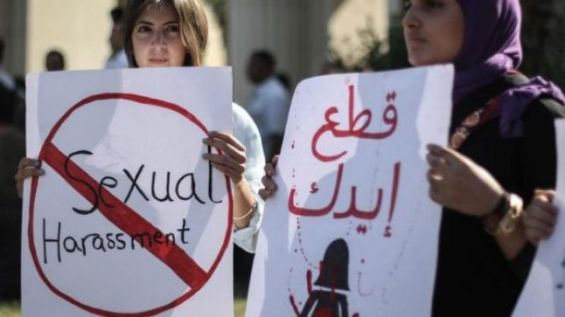On social media, Moroccan women created their own hashtag to denounce sexual harassment. Masaktach, (I am not keeping quiet) has went viral on the internet and several female internet users took their anger to Twitter and Facebook in a quite particular context.
In fact, Morocco passed on September the 12th bill 103.13 on combating violence against women and which was dedicated also to sexual harassment. This step, in addition to several cases that were recently mediatized such as the «tattoo girl», have made of social media a platform to spill the tea.
Quelle est votre pire expérience de harcèlement dans la rue ? Cc @masaktach
— Aida Alami (@AidaAlami) 9 octobre 2018
A vivid example was spotted on Twitter where Moroccan journalist Aida Alami asked her followers on Tuesday, to share their worst sexual harassment stories. Their responses were enormous and several Moroccan women rushed to tell, with no boundaries, what once was a taboo that no one dared talking about.
A brave campaign
The campaign was considered brave by social media expert Marouane Harmach. Speaking to Yabiladi on Wednesday, the consultant believes that Masaktach is a «positive initiative» that came as a response to the current situation in the country.
«The hashtag occurred during a very particular context, an international one», said Harmach, referring to «the American Me Too and French Balance ton Porc». But for him, Morocco’s Masaktach came in particular to «react to several other campaigns, such as Koun Rajel (Be a Man) and to denounce a series of other cases that shook Moroccans : Khadija who was allegedly kidnapped raped by a group of teenagers, the girl harassed at the bus and many others».
For Harmash, social media became a solid platform that allowed female internet users to prove that «women are being sexually harassed, regardless of their age, appearance and clothes».
But, the most important thing is that talking about the topic is «making it mainstream» and is contributing to breaking the taboo, stresses the Moroccan expert.
Chance shouldn't be just a social media thing
But breaking the taboo on social media doesn’t automatically result in changing how society sees women in Morocco. The idea was conveyed by Moroccan psychosociologist Mohcine Benzakour, who believes that «there is a huge difference between denouncing sexual harassment on social media and doing the same in real life».
Benzakour is convinced that opening up about these kind of experiences on the internet is easier that in real life, where society is still looking at the topic in a different way.
«It is a taboo that is being slowly broken, which is very positive, but the question we need to ask is, are these women ready to talk about sexual harassment in front of their fathers, families, society and the ‘harasser’ ?»
To put it in other words, things are changing on social media in a pace that is not identical to the one existing in reality and in society, concluded Benzakour.
Let women speak for themselves
Change has also been at the heart of Stephanie William Bordat’s interpretation of the Masaktach campaign. The co-founder of Mobilizing for Rights Associates (MRA) sees the hashtag as a positive thing «that finally let women speak for themselves».
The activist is fed up with making others talk about women and not giving them the opportunity to voice their struggles, and experiences their way. On top of that, Bordat strongly believes that the way in which society deals with women who have sexually harassed must change.
«Instead of a Me Too, it is time to say He Too», she argued. «In the past harassed women were invisible, but now we can hear them and see them but unfortunately we still can’t see men who are behind these harassments».
Bordat is for the idea of putting men under the spot light, exposing them and giving numbers and statistics about who they are and how many women they have harassed in the past.





 chargement...
chargement...













